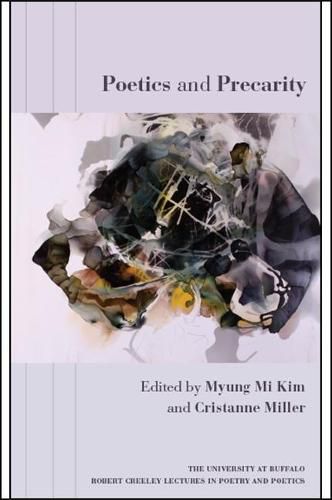Readings Newsletter
Become a Readings Member to make your shopping experience even easier.
Sign in or sign up for free!
You’re not far away from qualifying for FREE standard shipping within Australia
You’ve qualified for FREE standard shipping within Australia
The cart is loading…






At a time when wars, acts of terrorism, and ecological degradation have intensified and isolationism, misogyny, and ethnic divisiveness have been given distinctively more powerful voice in public discourse, language itself often seems to have failed. The poets and critics in this book argue that language has the potential to address this increasing level of discord and precarity, and they negotiate ways to understand poetics, or the role of the poetic, in relation to language, the body politic, the human body, breath, the bodies of the natural environment, and the body of form.
Poetry makes urgent issues audible and poetics helps to theorize those issues into critical consciousness. Poetry also functions as a cry to protest late capitalist imperialism, misogyny, racism, climate change, and all the debilitating conditions of everyday life. Hubs of concern merge and diverge; precarity takes differently gendered, historied, embodied, geopolitical manifestations. The contributors articulate a poetics that renders what has not yet been crystallized as discourse into fields of force. They also acknowledge the beauties of sound, poetry, and music, and celebrate the power of community, marking the surge of energy that can occur at a particular place at a particular moment. Ultimately, Poetics and Precarity fosters further conversations that will imagine the concerns of poetics as a continuously emerging field.
$9.00 standard shipping within Australia
FREE standard shipping within Australia for orders over $100.00
Express & International shipping calculated at checkout
At a time when wars, acts of terrorism, and ecological degradation have intensified and isolationism, misogyny, and ethnic divisiveness have been given distinctively more powerful voice in public discourse, language itself often seems to have failed. The poets and critics in this book argue that language has the potential to address this increasing level of discord and precarity, and they negotiate ways to understand poetics, or the role of the poetic, in relation to language, the body politic, the human body, breath, the bodies of the natural environment, and the body of form.
Poetry makes urgent issues audible and poetics helps to theorize those issues into critical consciousness. Poetry also functions as a cry to protest late capitalist imperialism, misogyny, racism, climate change, and all the debilitating conditions of everyday life. Hubs of concern merge and diverge; precarity takes differently gendered, historied, embodied, geopolitical manifestations. The contributors articulate a poetics that renders what has not yet been crystallized as discourse into fields of force. They also acknowledge the beauties of sound, poetry, and music, and celebrate the power of community, marking the surge of energy that can occur at a particular place at a particular moment. Ultimately, Poetics and Precarity fosters further conversations that will imagine the concerns of poetics as a continuously emerging field.